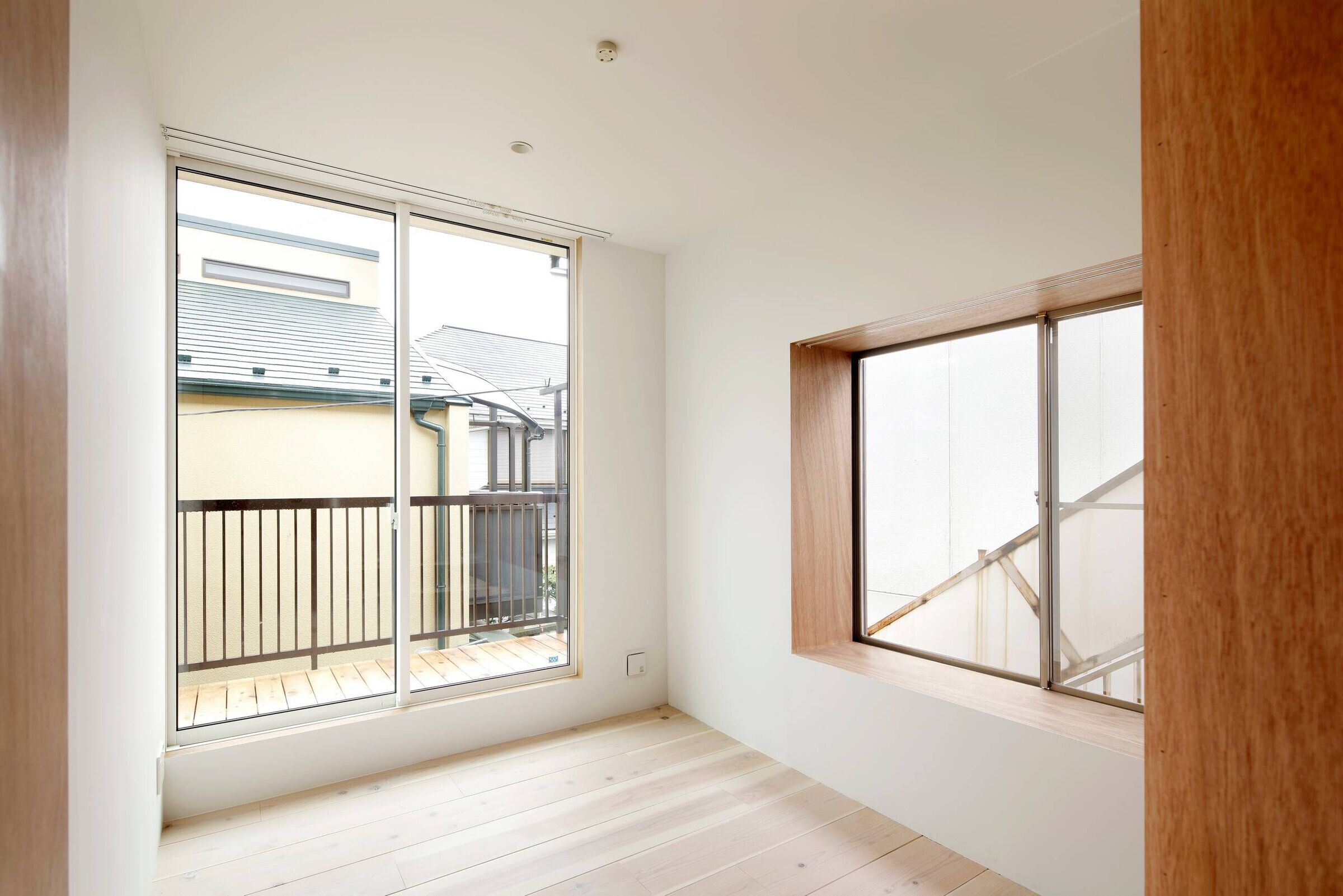This is an interior renovation project of an existing two-story timber structure house in Tokyo built approximately 40 years ago. The client is a young couple, and the wife’s parents were living there before the renovation. The client decided to live with their parents in this house. Soon after, the wife’s grandmother who lives alone in the countryside – far from Tokyo – also decided to live together in this house.
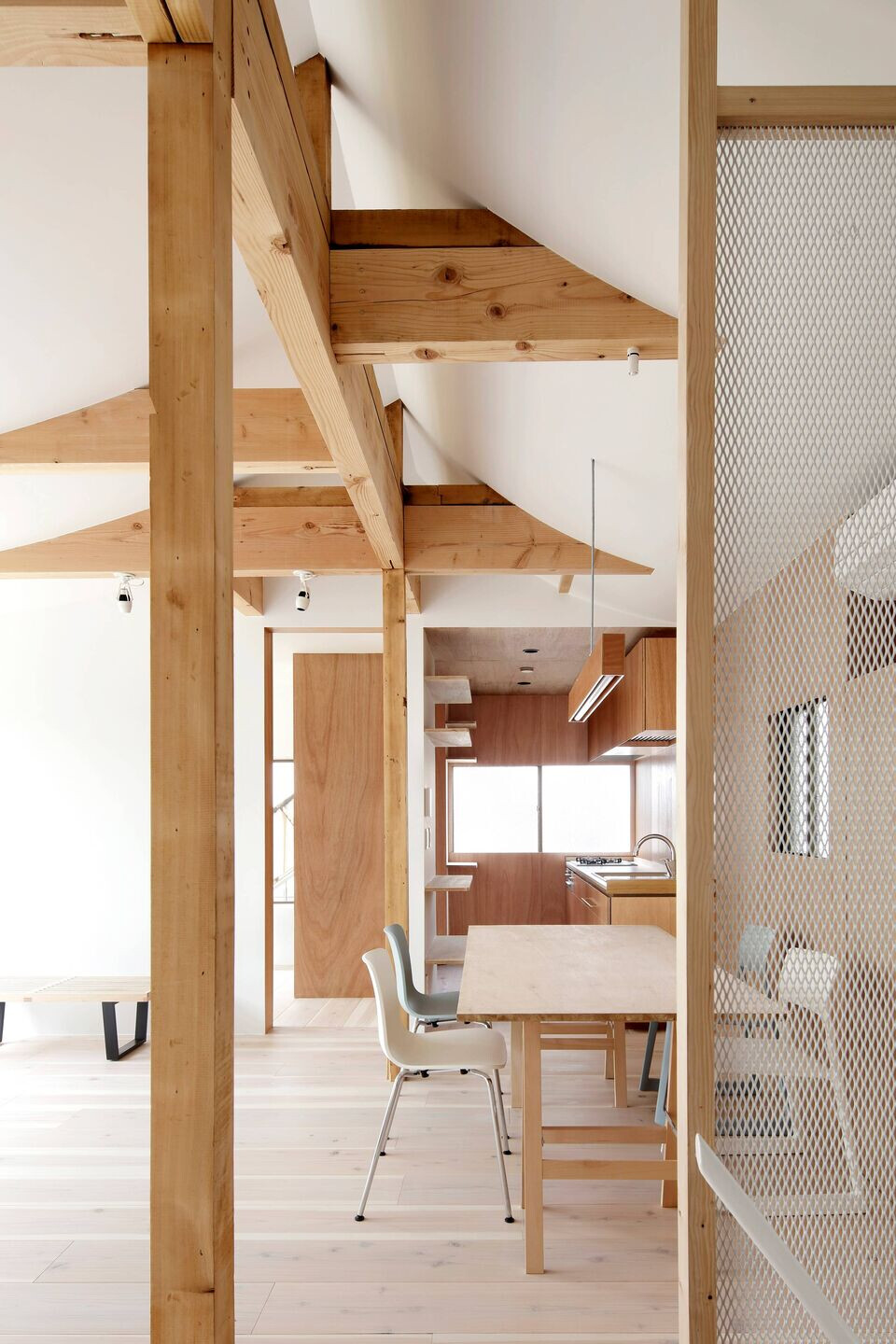
As such, the client requested to renovate the house suitable for accommodating 4 generations - the grandmother (1st generation), parents (2nd generation), the client (3rd generation), the client's son (4th generation). While the age as well as daily living rhythm of each family member are different, creating a space to promote comfortable connection among them was one of the major focuses of the project. Another focus was provision of the comfortable living environment. The existing condition of daylight and ventilation was not preferable since the existing rooms were split into smaller functions and as such, they were not open to the outside environment nor to each other, leading to poor daylight and natural ventilation.
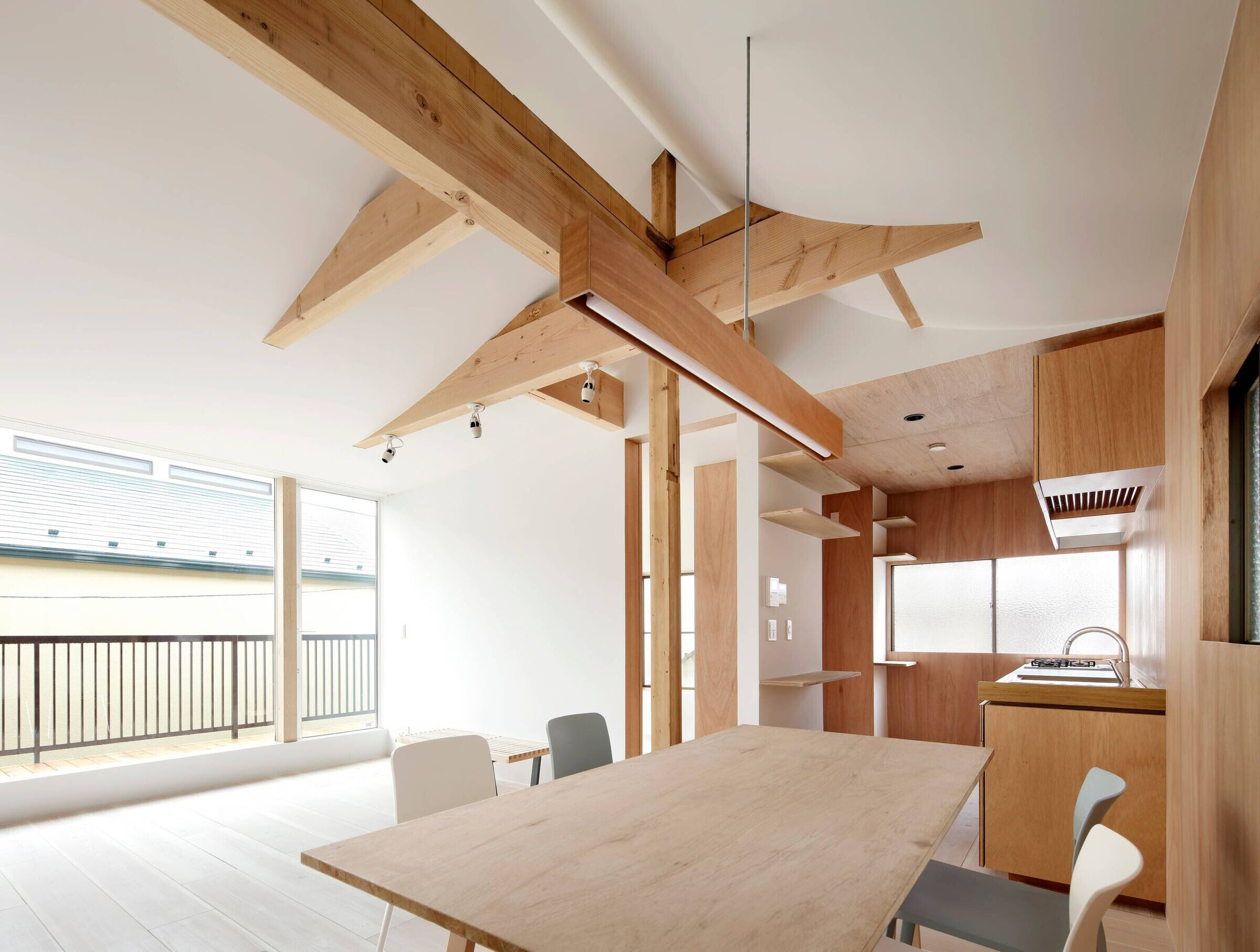
Firstly, we carefully studied the arrangement of rooms to take full advantage of existing windows thus maximizing natural daylight and ventilation. Furthermore, common spaces are secured in each floor, adjacent to private rooms and act as communication hubs to seamlessly connect different generations.
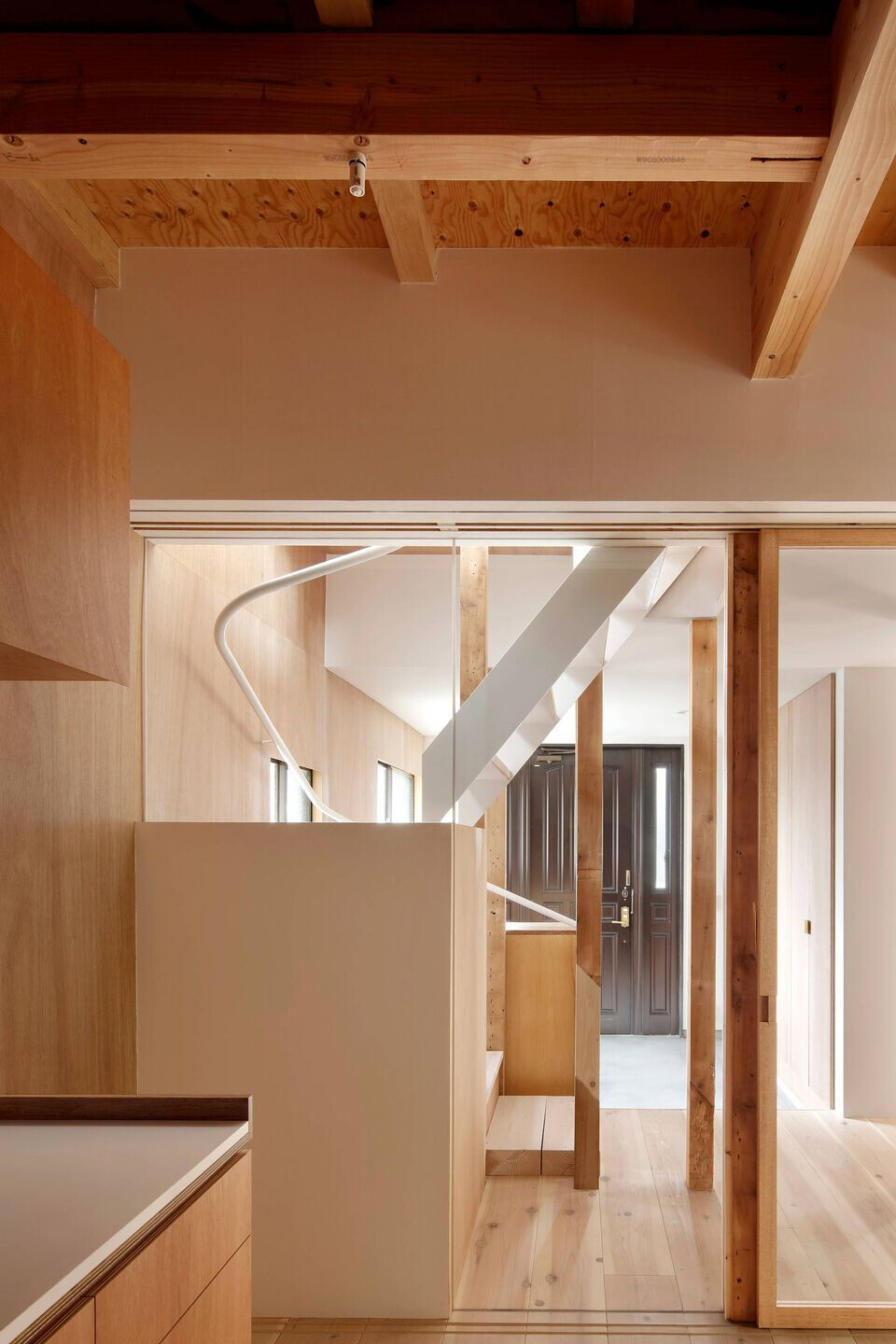
The private rooms are also exchangeable among the members so as to enhance communication between generations; similar to a share-house lifestyle. However, since private rooms were prioritized in planning, securing enough natural daylight in common space on the 1st floor became another challenge; particularly as it faces north. Consequently, a catenary ceiling was designed on the 2nd floor to better reflect daylight into the 1st floor; this became a distinguishing feature of the house.
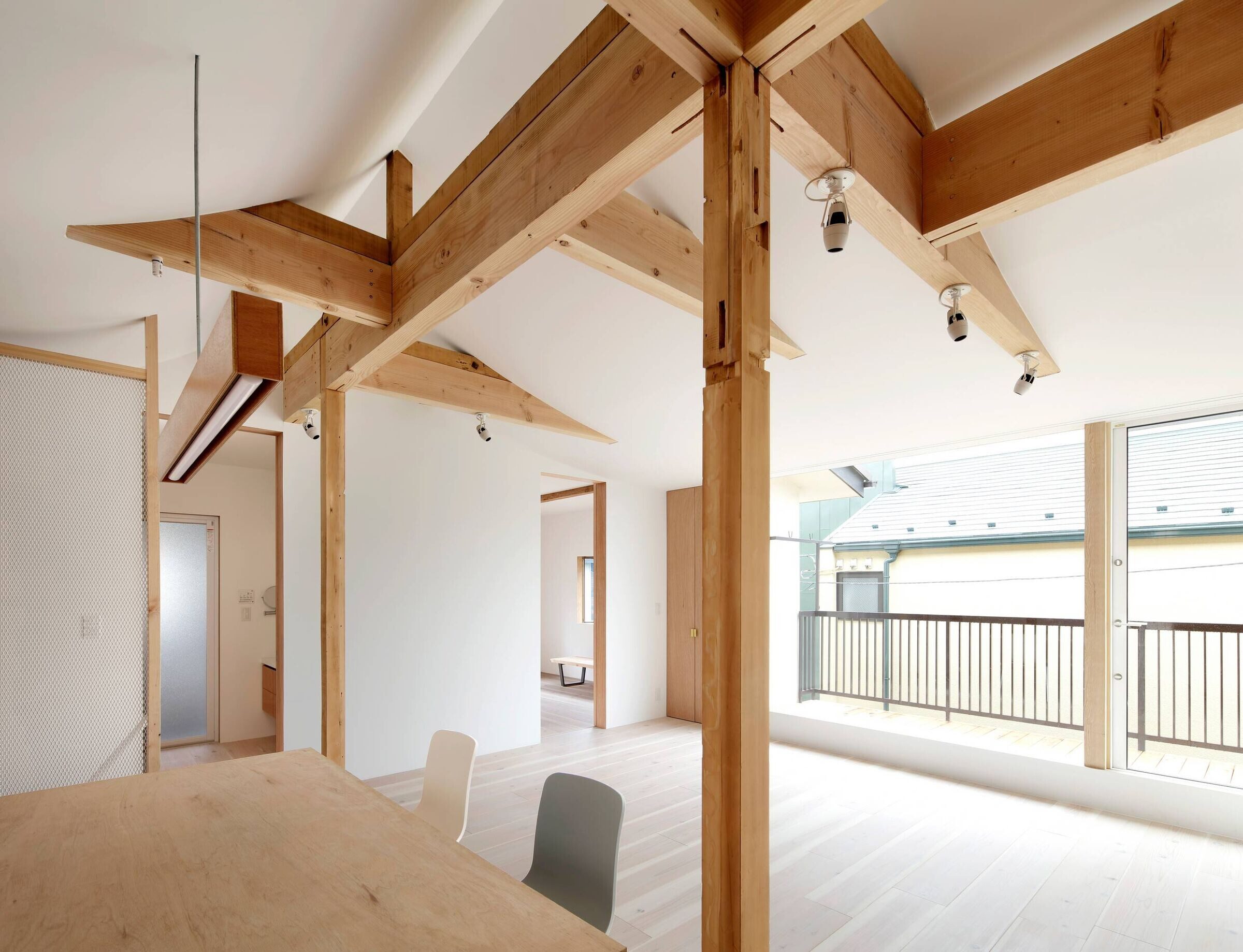
At the same time, we also reviewed the existing structure. Although the columns were densely arranged in accordance with the existing partitions, we found that the existing house was structurally unbalanced and lacked the necessary structural resistance. As such, we decided to add reinforcements through supporting beams and structural plywood whilst optimizing the use of its existing structural components.
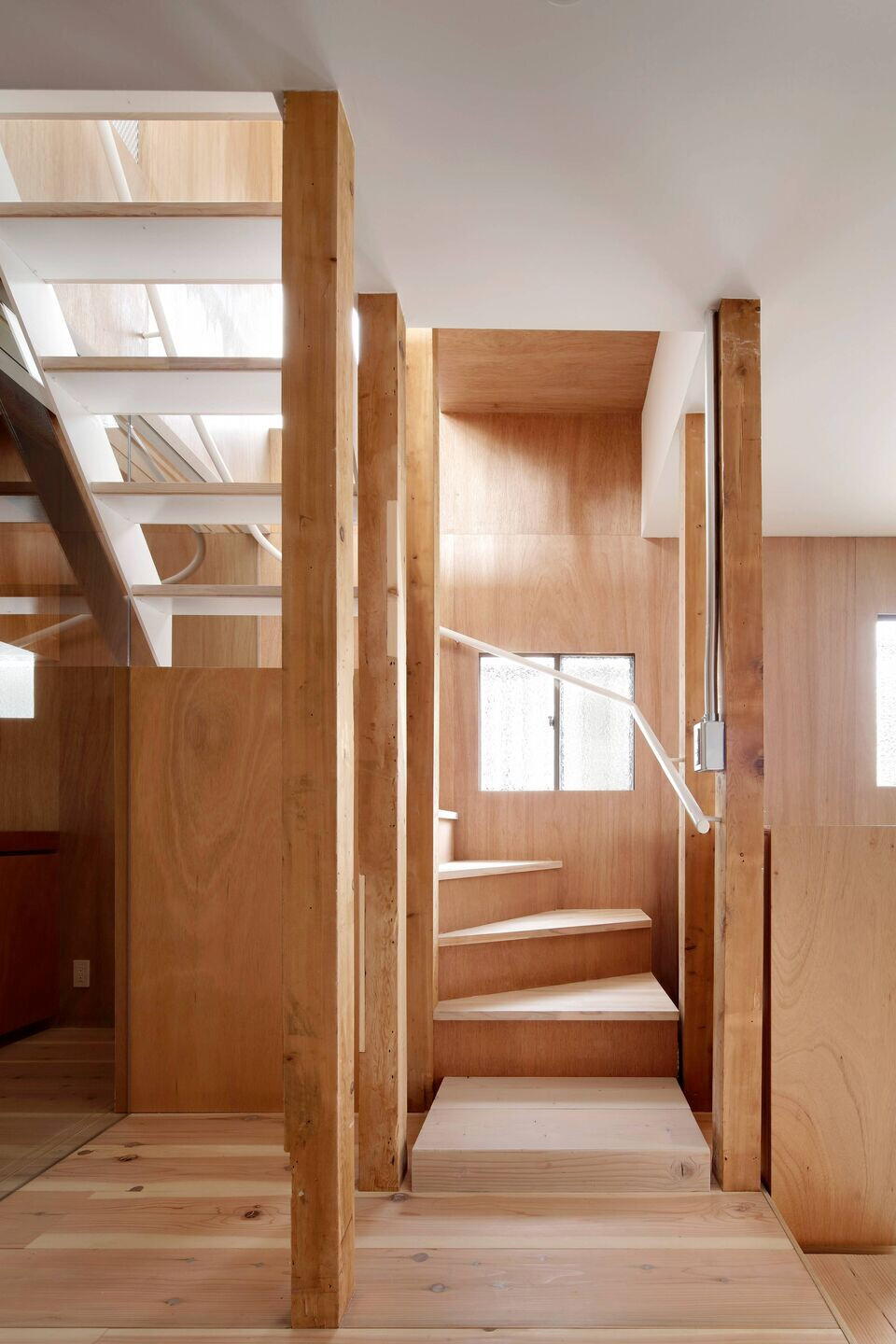
As a result of such studies, some columns were deemed redundant and thus removable (total 20 columns were removed), providing an opportunity to create open spaces free of columns. The catenary-shaped ceiling gently envelopes all 4 generations of families who ultimately enjoy living in a space abundant of natural daylight and ventilation.
